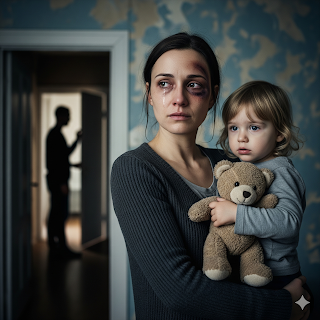Domestic violence is a serious issue that affects millions of people worldwide. It does not discriminate—it can happen in any family, community, or culture, regardless of age, gender, or social status. By raising awareness, we can help victims find support, encourage prevention, and work toward a safer future.
🌍 What Is Domestic Violence?
Domestic violence refers to abuse within a household or intimate relationship. It can take many forms, including:
Physical abuse – hitting, slapping, or physical harm.
Emotional abuse – insults, threats, humiliation, or controlling behavior.
Financial abuse – restricting access to money or resources.
Psychological abuse – intimidation, manipulation, or isolation.
Domestic violence is not just about physical harm—it’s about control and power.
⚠️ Warning Signs of Domestic Violence
Recognizing the signs is the first step to helping victims. Common signs include:
Constant fear of a partner or family member
Frequent injuries with unclear explanations
Isolation from friends and relatives
Sudden changes in behavior, mood, or confidence
Being monitored or controlled in daily life
💔 The Impact of Domestic Violence
The effects of abuse can last a lifetime. Victims may experience:
IPhysical injuries and long-term health problems
Depression, anxiety, or post-traumatic stress disorder (PTSD)
Low self-esteem and loss of confidence
Negative effects on children who witness violence
Financial struggles due to control or dependence
Domestic violence not only harms individuals but also damages families and communities.
💡 How to Seek Help
If you or someone you know is facing domestic violence, you are not alone. There are safe ways to seek help:
Reach out to local hotlines or helplines for confidential support.
Contact trusted friends, family, or community organizations.
Speak to a counselor, doctor, or social worker.
If in immediate danger, call emergency services right away.
🌱 Building a Path to Healing
Recovery from domestic violence takes time, courage, and support. Counseling, therapy, and support groups can help survivors regain strength and rebuild their lives. Communities can also contribute by educating people, breaking the stigma, and supporting laws against abuse.
Domestic violence is not a private issue—it is a social problem that requires awareness, compassion, and action. By understanding its causes, recognizing its effects, and offering support, we can create safer homes and healthier communities.
